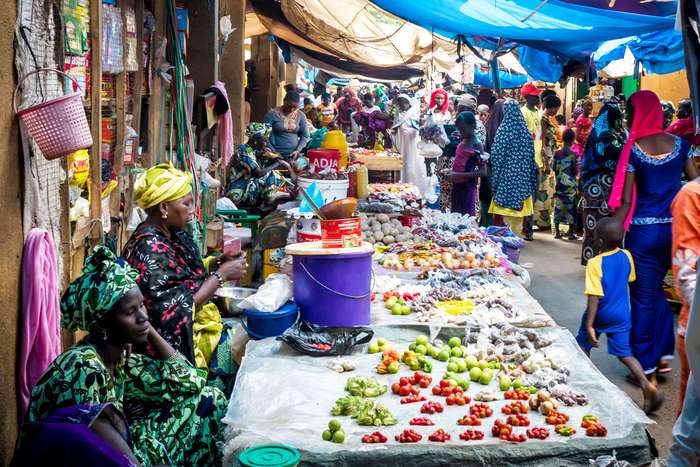By: Mustapha Ceesay
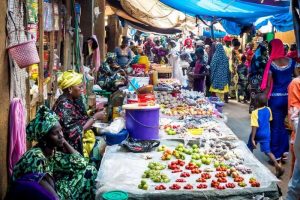
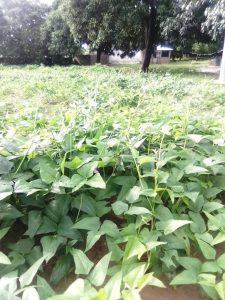
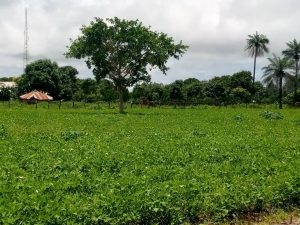

Women entrepreneurs who have been engaging in petty trading for survival and taking care of their social needs have turned to farming due to coronavirus pandemic which grinds businesses to a halt for most part of 2020.
The government closed all forms of interactive trading in the country for months when the virus surged, before later relaxing restrictions. The shutdown of business centres was aimed at controlling the spread of the virus. For the markets, where most of these women sustain their livelihoods, were partially closed as they were only allowed to operate from 6am to 2pm and 6am to 6pm respectively on a shift basis.
This has severely affected their gains. The stagnation of business activities called for creativity and some women utilised their entrepreneurship skills to shift attention elsewhere using their business profits, particularly farming when the rainy season started. They believe this will help in filling the economic gap dug by the pandemic.
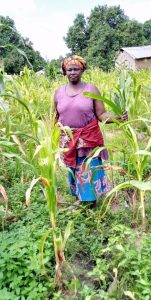
”The pandemic has stopped everything including our businesses. Everything is at a standstill. I am not into business now, but I have at the moment to venture into farming. I have grown groundnuts and cassava. I used my little profits to buy the seeds and the cassava sticks, which after harvest, I will sell and reinvest it into my business immediately after the pandemic,” says Amie Badjie, a resident of Nyofeleh, a Kombo South district settlement.
Amie’s creativity is expected as a trained person in business and finance management by Buzz Women Gambia, a not-for-profit NGO in The Gambia.
She hopes to resuscitate her collapsed business with the proceeds of her farming venture, after the pandemic.
In Jambanjelly settlement, about 5KM from Brikama, resides Musu Kebba Fatty. Her business suffered a blow by the pandemic. She turned to farming as an alternative.
“It is true that businesses are not working as expected. But then, it’s important that one looks for other alternatives, if the other side is not working. As Buzz Women Gambia has taught us how to diversify our economic activities, I have used that knowledge gained to venture into farming. I have used the small profits from my business and bought some seeds such as cowpea (beans) to grow.”
Like Amie, Musu Kebba is optimistic to restart her business with the income raised from her new investment- farming after a bumper harvest.
”I am expecting a good harvest. When I sell my harvest at the end of the season, I will restart my business immediately after the pandemic. And some part of the harvest too would be used for the family consumption. We just hope that this pandemic goes as soon as possible.”
Mba Tida Jatta, a native of Siffoe said her business also agonised by the pandemic that the world is experiencing.
“As I speak now, my business is not working as expected. It’s posing a lot of difficulties to my business and livelihoods. The feeding of my family and taking care of other domestic issues in the family becomes a problem.”
Mba Tida refused to fold her hands. She invested in farming by cultivating groundnut and cassava. Like others, she used her entrepreneurship skills she acquired from the Dutch NGO Buzz Gambia training.
“With all these difficulties, I was able to use the knowledge gained from the Buzz Gambia [entrepreneurship] training to venture into other economic activities like farming. As I speak now, I have used some part of my business profits to buy groundnut and cassava sticks to start farming. After I harvest these crops, I will sell them and use part of it [funds] to reinvest into my collapsed business and use other part [of the funds] for home consumption.”
Unlike her trio colleagues, Fatou Njie, a vendor in Kafuta, is afraid of investing into farming even though the impact of Covid-19 has heavily blown her business by forcing her out of business.
“At the moment, nothing is happening which is as a result of the pandemic. Businesses and everything else are either at standstill. Everyone is sitting and waiting for this [Coronavirus] to go. I’m afraid of further investment in other ventures, as it can cost me. At the moment, I just pray that this virus disappears as soon as possible for us to get back to our livelihood activities.”
Fatou Touray Cham, the National Coordinator for Buzz Women Gambia, the organisation that trained the mentioned women on business and financial management skills says her office provides women opportunities to unleash their potential and diversify their income generation means.
“Women, we believe have great potential that can be unleashed once they have the tools and opportunity. Buzz women Gambia training provides those opportunities to women, by giving them the knowledge and skills to diversify their sources of income.”
Gambia Chamber of Commerce and Industry’s (GCCI) Online Rapid Survey of the Impact of Covid-19 on Gambian Businesses in July this year, reveals that the COVID-19 pandemic is causing untold human suffering and poses a grave threat to many businesses across The Gambia.
“For certain sectors, regions and business categories facing disproportionate risks, the crisis is likely to leave an indelible impact on many MSMEs (medium, small & micro enterprises) and corporate entities alike. Many were vulnerable even before the crisis, and are now the least resilient because they typically have limited cash reserves and smaller client bases,” the survey states.
The online survey also predicts that Over 360 MSME members will not survive the COVID-19 pandemic; while about 17, 590employees of these businesses are set to lose their jobs, and micros alone could potentially lay off 680employees. This could possibly translate to16, 048 employees at registered micro businesses countrywide, according to the finding.
The Gambia registered its first case of the Coronavirus alias COVID-19 in March this year, three months after the virus hit the Chinese City of Wuhan. Since then, the virus has so far claimed the lives of 122, infected 3, 696, and 3, 543 patients recovered, while 31 patients are undergoing treatment, according to the 190th national Covid-19 situation report released 9th November 2020.

